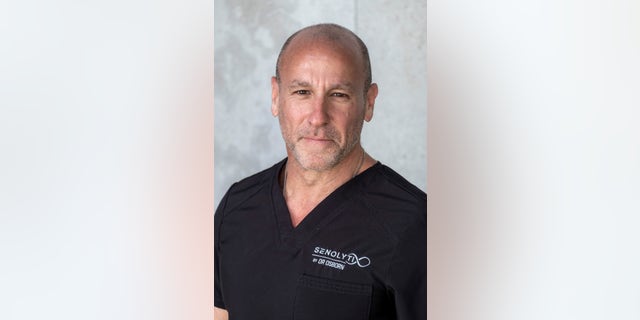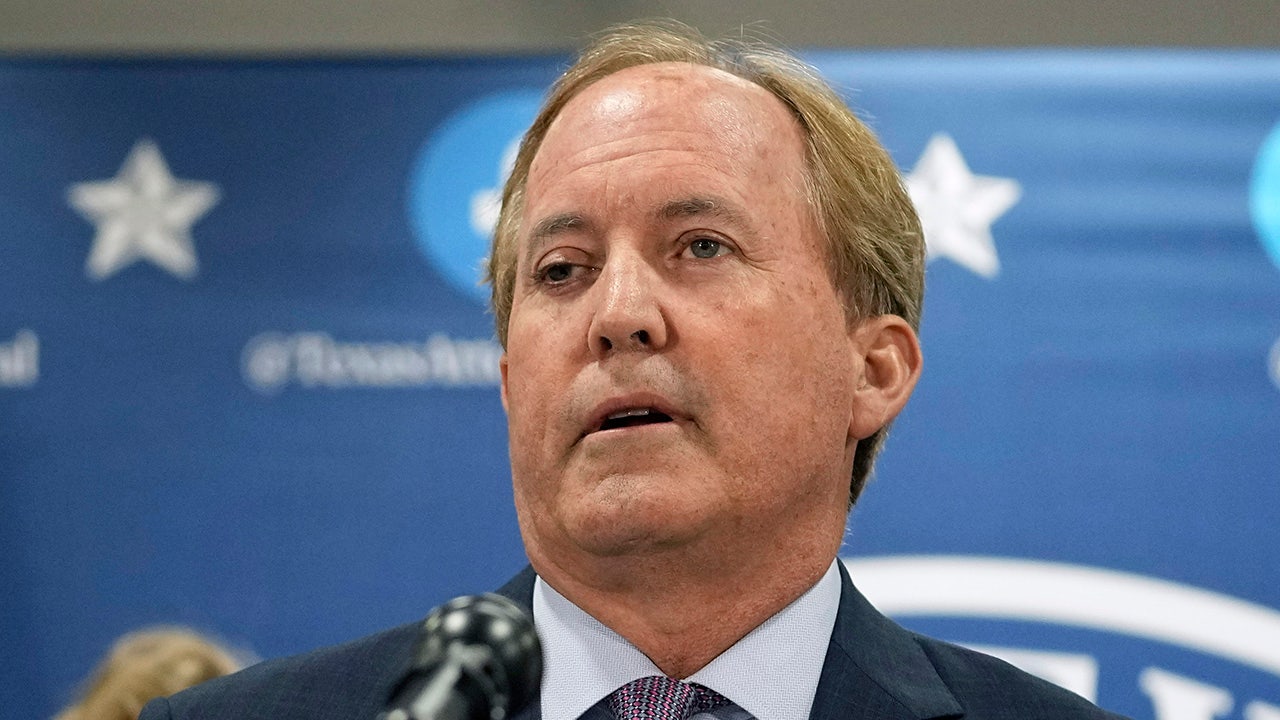Health
5 healthy habits may be the secret to living longer, Florida neurosurgeon reveals

The average life expectancy in the U.S. has dipped to 76.4 years, according to December data from the Centers for Disease Control and Prevention (CDC) — but many medical professionals believe people can extend their longevity by adopting certain lifestyle habits.
Dr. Brett Osborn, a board-certified neurosurgeon in West Palm Beach, Florida, is also the founder of a preventative health care and anti-aging facility, Senolytix.
He works with patients to help them achieve a healthy weight, adopt better wellness habits and reduce their risk of chronic diseases such as obesity and diabetes.
“My motto is, you are never too young or too old for good health,” he said.
HEART ATTACK DEATH RISK CAN DOUBLE DURING HEAT WAVES AND HIGH POLLUTION, STUDY FINDS: ‘A PERFECT STORM’
In an interview with Fox News Digital, Osborn shared the five daily health habits he recommends to his patients to help them live longer, healthier lives.
1. Assume responsibility for your own health
While it’s important to consult with a health care professional as needed, Osborn emphasized that people should listen to their own bodies and identify potential risks.
In a discussion with Fox News Digital, Dr. Brett Osborn shared the five daily health habits he recommends to his patients to help them live longer, healthier lives. Some may be surprising. (iStock/Brett Osborn)
“In general, standard health surveillance for the average American is poor,” said Osborn, who holds a certification from the American Academy of Anti-Aging Medicine. “We simply are not aggressive enough in checking for and catching risk factors of fatal diseases.”
Most people aren’t proactive in discovering risks for themselves, he said — relying too much on their doctors or online health information.
“Don’t think that your doctor is going to find all your risk factors and save you from a heart attack or stroke — more often than not, that doesn’t happen,” he warned. “These are silent killers that can do their damage before someone experiences symptoms.”
“Don’t think that your doctor is going to find all your risk factors and save you from a heart attack or stroke — more often than not, that doesn’t happen.”
Given the prevalence of both high blood pressure and insulin resistance, Osborn recommends that everyone self-monitor at home for the early signs of these potentially deadly problems.
“People who wait for their annual check-up to find out what’s going on with their health are making a terrible mistake,” he said. “A lot can go wrong in the year or two between visits to the doctor, and lack of persistent attention or procrastination can kill you.”
2. Take these 6 blood tests — and take them seriously
The best way to prolong your life is to lower the risk of heart attack and stroke, according to Osborn — and the first step in doing so is identifying the risk factors.

Dr. Brett Osborn is a board-certified neurosurgeon in West Palm Beach, Florida, who has 15 years of experience in longevity medicine. (Dr. Brett Osborn)
“It is nearly impossible to achieve optimal health without taking intermittent snapshots of the inner workings of your body to guide you, which can be provided by laboratory testing that will accurately identify any and all risk factors,” Osborn said.
“Taking these tests early — and taking the results seriously — can save your life.”
AI TECH AIMS TO HELP PATIENTS CATCH DISEASE EARLY, EVEN ‘REVERSE THEIR BIOLOGICAL AGE’
Osborn recommends implementing six blood tests to help prevent age-related diseases.
1. Lipid Profile. This test provides a rough idea of the ratio of “good” to “bad” cholesterol, he said.
2. Vertical Auto Profile (VAP). This is a cholesterol, lipid and lipoprotein test that measures all the components of a standard lipid profile and also delves further, segmenting cholesterol into sub-types.

Osborn works with patients to help them achieve a healthy weight, adopt better wellness habits and reduce their risk of chronic diseases like obesity and diabetes. (Dr. Brett Osborn)
“I would strongly consider VAP testing in lieu of the standard lipid profile if you have high blood pressure, diabetes or a family history of heart disease or stroke,” Osborn said.
“You may be surprised to learn that what was once deemed ‘normal’ in the standard lipid profile is far from it.”
3. C-Reactive Protein (CRP). Patients with obesity and metabolic syndrome have elevated CRP levels, which is a risk factor for coronary heart disease, hypertension, type 2 diabetes and atherogenic dyslipidemia, Osborn explained.
4. Homocysteine. “Elevations in homocysteine are associated with a variety of diseases, including heart attack, stroke, Alzheimer’s disease and osteoporosis,” Osborn said.

Osborn recommends regularly taking five blood tests to help prevent age-related diseases. (iStock)
5. Hemoglobin A1C. This test measures how well blood sugar levels have been controlled over weeks or months.
JUST 4 MINUTES OF INTENSE DAILY ACTIVITY COULD SLASH CANCER RISK AMONG ‘NON-EXERCISERS,’ STUDY FINDS
“This test doesn’t lie,” Osborn said. “It is an average, a wide-angle lens, not an instantaneous snapshot like a fasting glucose level. You want this level to be as low as possible.”
6. Vitamin D3. There is evidence that Vitamin D3 deficiency is associated with stroke, insulin resistance, Alzheimer’s dementia, coronary artery disease and cancer, according to Osborn.
“Get this tested and intervene if necessary, as failure to do so will predispose you to a variety of diseases,” he warned.
3. Embrace these 10 supplements
Although supplements are not to be used as primary treatments for ailments, Osborn said, they can be used as a complement to a well-rounded diet and exercise regimen.

Osborn is founder of a preventative health care and anti-aging facility, Senolytix, in West Palm Beach, Florida. “The right supplement regime,” he said, “can optimize your health so that your hard work is maximized to its fullest potential.” (Dr. Brett Osborn)
“Supplements will not remedy your elevated blood sugar, blood pressure, gouty arthritis and hypertension — only you can. There is no easy way out,” Osborn said.
“The right supplement regime, however, can optimize your health so that your hard work is maximized to its fullest potential, and should be treated as equally important as the right food choices and fitness routines,” he added.

Although supplements are not to be used as primary treatments for ailments, Osborn said they can be used to complement a well-rounded diet and exercise regimen. (iStock)
Osborn recommends these top 10 nutritional supplements to help prevent free radical damage, oxidative stress and chronic inflammation, the main factors of age-related disease:
- Omega-3 fatty acids
- Resveratrol
- Green tea extract
- Vitamin D3
- Curcumin
- B-complex
- Vitamin C
- Vitamin E
- Magnesium
- Probiotics
“Supplements will not remedy your elevated blood sugar, blood pressure, gouty arthritis and hypertension — only you can. There is no easy way out.”
Osborn opts to skip multivitamins, he said, because “the dosages of the individual components are fairly low.”
4. Work your brain
Although it’s not a muscle, Osborn emphasized that the brain benefits from exercise, both mentally and physically.
“Physical exercise and critical thinking both forge neural pathways in the brain,” he said.
“There is a component of learning while exercising or working through mental challenges like puzzles, and this process of learning literally rewires the brain.”

Although it’s not a muscle, the brain benefits from exercise, both mentally and physically, said Osborn. (iStock)
“As we age, keeping the brain active through physical activity helps to prevent the progression of age-related atrophy,” he added.
Physical activity helps to form synapses, which are connections between neurons that help to reduce inflammation, reverse age-associated spatial memory loss and enhance learning, Osborn explained.
It also helps to prevent diseases like Parkinson’s and Alzheimer’s, he added.
ASPARTAME DEFENDED BY INDUSTRY EXPERTS AFTER CANCER RISK WARNING: ‘LIMITED EVIDENCE’
“There is also evidence that augmented blood flow to the brain during exercise promotes neurogenesis (formation of new neurons in the brain),” he added. “Exercise can enhance both learning abilities and memory.”
Beyond physical activity, learning a new skill can also “turbo-charge” the brain, Osborn said.
5. Know your food’s glycemic index
Measuring your food’s glycemic index (GI) is a way of rating the impact it has on blood sugar and insulin, Osborn explained.
This knowledge can then be used to find and avoid hidden sugars.
Kidney beans, for example, have a glycemic index of 23, peanuts are rated at 7 and white rice is 89.
“Simply put, the sweeter the food, the higher the GI value,” Osborn said.
After eating low-GI foods, glucose increases only mildly, which means there is less insulin produced.

Measuring your food’s glycemic index (GI) is a way of rating the impact it has on blood sugar and insulin, Osborn noted. (iStock)
“Tight glycemic control is primarily a function of several interrelated factors, such as ingestion of low-GI foods, lean body mass and daily exercise,” Osborn explained.
CLICK HERE TO SIGN UP FOR OUR HEALTH NEWSLETTER
“While low-glycemic index carbohydrate consumption facilitates weight loss, eating your daily vegetables has far greater, life-extending effects,” he added.

Health
How Much Weight Can You Safely Lose in a Month? Here’s What Doctors Say

Use left and right arrow keys to navigate between menu items.
Use escape to exit the menu.
Sign Up
Create a free account to access exclusive content, play games, solve puzzles, test your pop-culture knowledge and receive special offers.
Already have an account? Login
Health
Zone 2 training: The trending workout that burns fat without intense exercise

An exercise that takes a more mild approach while offering all the fat-burning benefits of a more grueling workout might sound too good to be true.
But some claim that the trending “Zone 2” training, commonly known as the “fat-burning zone,” offers just that.
What is this form of exercise — and can it work for anyone?
STUDY REVEALS EXERCISING EVERY DAY MAY NOT BE NECESSARY: ‘BETTER THAN NONE’
“Zone training is generally defined by someone’s proximity to their maximum heart rate,” Carmine Ciliento, a fitness manager at Crunch Fitness in New York, told Fox News Digital.
The zone-based training method measures how hard the body is working and how it’s using energy.
Zone training is based on the exerciser’s proximity to their maximum heart rate. (iStock)
Different zones burn different compounds in the body, according to Ciliento.
“Zone 2 is working out at about 60% to 70% of someone’s maximum heart rate,” he said.
STAY FIT IN YOUR 40S AND BEYOND WITH THESE SMART WORKOUT TIPS
The most common way to determine heart rate is to subtract a person’s age from 220. This means a 55-year-old would have an approximate maximum heart rate of 220 – 55 = 165 bpm.
Wearable heart rate monitors and sports watches can be used to track heart rate while working out, and many cardiovascular fitness machines also calculate it.
Benefits of Zone 2 training
When someone is working out, their heart rate zone indicates their level of exertion and what they’re utilizing for energy, according to exercise physiologist Chris Travers via Cleveland Clinic.
JILLIAN MICHAELS REVEALS SIMPLE WORKOUT TO EXTEND YOUR LIFESPAN ‘UP TO 7 YEARS’
The higher the heart rate gets, the more carbohydrates and protein the body burns for energy, and the less it relies on fat for fuel.
While exercising in Zone 2, roughly 65% of the calories burned are from fat, according to Cleveland Clinic.

While exercising in Zone 2, roughly 65% of the calories burned come from fat. (iStock)
“Zone 2 is especially valuable because it allows you to add cardio volume to your training without overstressing your body,” Ciliento told Fox News Digital.
“For people just starting out, anything above Zone 2 may be too intense, so a lot of their work will most likely need to begin in this zone.”

“Zone 2 is especially valuable because it allows you to add cardio volume to your training without overstressing your body,” an expert said. (iStock)
Athletes and those who are already into fitness may not reap as many benefits from Zone 2 as those who are just starting out.
Ciliento, who is an endurance athlete, said he sees Zone 2 as a great tool for recovery efforts.
Getting to Zone 2
Cleveland Clinic defines Zones 1, 2 and 3 as moderate-intensity aerobic activity.
In Zone 2, you should be able to hold a “light conversation,” but may need to take a break from talking to take a breath now and then, according to Cleveland Clinic.
CLICK HERE TO SIGN UP FOR OUR HEALTH NEWSLETTER
This is sometimes referred to as the “talk test.”
When in Zone 2, Travers told Cleveland Clinic, “You’re in a moderately easy zone. Not everyone should stress about the numbers, especially if that becomes a barrier to enjoying exercise.”

In Zone 2, you should be able to hold a “light conversation,” but may need to take a break from talking to take a breath now and then, according to Cleveland Clinic. (iStock)
For most people, a brisk walk will get them into Zone 2, Ciliento noted.
For more Health articles, visit www.foxnews.com/health
Other moderate-intensity aerobic exercises include biking, swimming or even mowing the lawn, according to Mayo Clinic.
Health
See the Weight Loss Apps That Helped One Woman Lose 118 Pounds

Use left and right arrow keys to navigate between menu items.
Use escape to exit the menu.
Sign Up
Create a free account to access exclusive content, play games, solve puzzles, test your pop-culture knowledge and receive special offers.
Already have an account? Login
-

 World1 week ago
World1 week agoSevere storms kill at least 21 across US Midwest and South
-

 News1 week ago
News1 week agoWatch: Chaos as Mexican Navy ship collides with Brooklyn Bridge, sailors seen dangling – Times of India
-

 News1 week ago
News1 week agoMaps: 3.8-Magnitude Earthquake Strikes Southern California
-

 Politics1 week ago
Politics1 week agoTexas AG Ken Paxton sued over new rule to rein in 'rogue' DAs by allowing him access to their case records
-

 Politics1 week ago
Politics1 week agoAfghan Christian pastor pleads with Trump, warns of Taliban revenge after admin revokes refugee protections
-

 Politics1 week ago
Politics1 week agoTrump, alongside first lady, to sign bill criminalizing revenge porn and AI deepfakes
-

 World1 week ago
World1 week agoPortuguese PM’s party set to win general election, fall short of majority
-

 News1 week ago
News1 week agoVideo: One Person Dead in Explosion Outside Palm Springs Fertility Clinic












